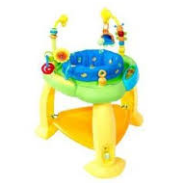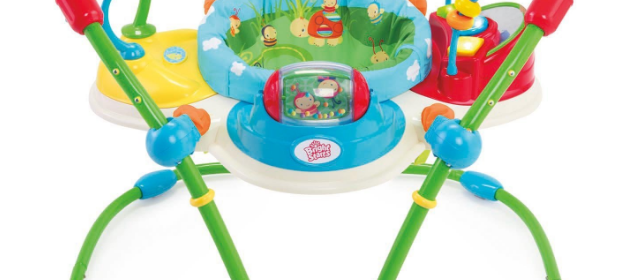Related Post
Conflict is a natural part of any team, but it doesn’t have to be destructive. In fact, when managed effectively, conflict can lead to stronger relationships and better outcomes. By embracing differences and using them as opportunities for collaboration, teams can turn potential conflicts into valuable learning experiences that benefit everyone involved. So how do you take those initial sparks of disagreement and transform them into powerful teamwork? In this post, we’ll explore some practical tips for turning conflict into collaboration and harnessing the power of diversity to build a more cohesive team.
Causes of Conflict
There are many causes of conflict, but some of the most common are communication problems, differing goals and objectives, and personality differences.
- Communication problems can arise when people don’t understand each other or have different ways of communicating. For example, someone may be a visual learner and need things explained to them in that way, while another person may be more of an auditory learner and need to hear things explained. If there is a misunderstanding, it can lead to conflict.
- Differing goals and objectives can also be a cause of conflict. For example, if one team member wants to focus on quality while another team member wants to focus on quantity, that can also lead to conflict.
- Personality differences can also be a cause of conflict. For example, if two people are both very strong-willed and used to getting their own way, they may have difficulty compromising with each other. Or if someone is very laid back and easygoing while another person is more high-strung and intense, that can also lead to conflict.
Strategies for Turning Conflict Into Collaboration
When people come together to work on a common goal, conflict is inevitable. But conflict doesn’t have to be a bad thing. In fact, it can be an opportunity to strengthen your team. The key is to view conflict as a chance for collaboration, not competition. When you approach conflict with this mindset, you can turn it into a positive force that brings your team closer together.
Here are some strategies for turning conflict into collaboration:
- Acknowledge the conflict. Don’t try to sweep it under the rug or pretend it doesn’t exist. Ignoring conflict will only make it worse. Acknowledge that there is a problem and be open to finding a resolution.
- Communicate openly and honestly. Work on communicating openly and honestly with each other. This means listening to each other’s perspectives and sharing your own honestly and without judgment.
- Seek out win-win solutions. Look for solutions that will benefit everyone involved, not just one side or the other. Win-win solutions are those that help everyone achieve their goals while still respecting each other’s needs and interests.
- Be willing to compromise. In any conflict, there will likely be some areas where you’re unwilling to budge. But be open to compromise on other areas in order to find a resolution that works for everyone.
- Practice empathy. Try to see things from the other person’s perspective and understand their feelings.
In Conclusion
By acknowledging differences, taking ownership of the problem, and keeping an open mind to solutions, teams can use conflict as a source of creative energy rather than destructive friction. Not only will this help strengthen your team’s bond, but it can also lead to greater productivity and efficiency in work processes. There is no better time than now to start turning conflict into collaboration.
As your baby is growing, it’s important to have the right toys to help with their development through the coming months. With the help of activity jumpers, babies can establish a strong foundation for bone and muscle growth as well as boosting their fine motor skills. This list has the top-rated activity jumpers for babies that will keep them engaged and entertained.
Types
Fisher-Price Jumperoo
 Fisher-Price is one of the best companies to rely on when it comes to buying toys for your little one. Their Jumperoo collection gives babies the comfort and security they need to sit and play. The overhead canopy with hanging toys is phenomenal for encouraging the development of spatial sense and motor skills meanwhile making playtime more fun than ever before. It is incredibly stimulating with activities located all around the jumper. Once playtime is over, parents can easily pack up the unit and store it away.
Fisher-Price is one of the best companies to rely on when it comes to buying toys for your little one. Their Jumperoo collection gives babies the comfort and security they need to sit and play. The overhead canopy with hanging toys is phenomenal for encouraging the development of spatial sense and motor skills meanwhile making playtime more fun than ever before. It is incredibly stimulating with activities located all around the jumper. Once playtime is over, parents can easily pack up the unit and store it away.
Evenflo ExerSaucer
With the combination of learning, playing, and jumping, your baby will have the time of their life when they’re using the Evenflo ExerSaucer. With a 360-degree rotating bodice, babies can play with all of the interactive activities all around the jumper. They will be able to build their core strength and develop key muscles needed to promote healthy walking. With an integrated height adjustment feature, you can continue to use the unit for all ages, and it offers 2x more bounce than other jumpers on the market. Parents can also remove the toys from the unit to customize the playing experience.
Baby Einstein Musical Motion Activity Jumper
Third on the list of top-rated activity jumpers for babies is this Baby Einstein model. It offers an incredible amount of features that are not only useful for parents, but children as well. There are over 12 activities that your baby can enjoy including a light up piano that offers three different playing modes. The comfort features include a high back seat and top of the line padding for the utmost amount of comfort. The 360-degree rotating seat is essential for reaching all of the toys around the entirety of the unit so babies can have unrestricted access. With the machine washable seat, you can easily take the unit apart and sanitize it for safe play. Also, there are five different height settings, which make the unit useful throughout the most crucial years of your baby’s development.
Sassy Inspire The Senses Bounce Center
 The Sassy Inspire The Senses Bounce Center doesn’t offer as many features as the above three jumpers, but it is a cost effective and convenient solution for parents. This model offers three different height adjustment settings that can create a customized fit for your baby. The removable seat pad is great for regular cleaning and it also rotates 360 degrees, so your baby will have a full range of motion. With a mirrored spinner, play station, and wonder wheel, there are an ample amount of activities to keep your baby entertained. Also, parents can change the toys on the jumper to create new and exciting play experiences every day.
The Sassy Inspire The Senses Bounce Center doesn’t offer as many features as the above three jumpers, but it is a cost effective and convenient solution for parents. This model offers three different height adjustment settings that can create a customized fit for your baby. The removable seat pad is great for regular cleaning and it also rotates 360 degrees, so your baby will have a full range of motion. With a mirrored spinner, play station, and wonder wheel, there are an ample amount of activities to keep your baby entertained. Also, parents can change the toys on the jumper to create new and exciting play experiences every day.
If you are organizing a conference, it is essential to make sure that you know the best venue you are likely to select. There are many various venues around but picking the best one might be a challenge if you do not know the best tips to consider. When you are choosing an event, you need to make sure that you have gathered all the information that will help you to make the right decision. Here are some of the factors you need to consider when choosing the proper event venue.
Location
 This should be one of the major factors you are required to remember when choosing the best event venue. First, ensure that you inquire about the best way to get a location. This, therefore, means that you will drive individually and see the best site you can consider choosing. For example, you may decide to select Victoria Park function venue because it is situated near the town and it has all the amenities you may need. Therefore, make sure that you consider picking the best accessible location for your event venue.
This should be one of the major factors you are required to remember when choosing the best event venue. First, ensure that you inquire about the best way to get a location. This, therefore, means that you will drive individually and see the best site you can consider choosing. For example, you may decide to select Victoria Park function venue because it is situated near the town and it has all the amenities you may need. Therefore, make sure that you consider picking the best accessible location for your event venue.
Facilities
It is advisable to seek out a venue that has all the components you need for the event. There are many pieces of equipment you need in an event such as microphones, stages, and even the audiovisual equipment. Also, make sure that you check on the set-up capacities. Therefore, in other words, you are asked to pay specific attention to the seating arrangements. Also, if you will have the ability to engage some outside vendors, then ensure that you utilize break-out rooms.
Staffing
When you are choosing an event venue, it is essential to determine the exact number of visitors you expect. If you are unable to identify, then you can approximate. By doing this, you will be able to identify whether you need enough concierge support, security and wait staff for your event. Also, since you will have many functions you are likely to attend to on that event day, check whether they offer a designer who is expected to assist you with any issues that may arise.
Food and Beverage
 When you are looking for the best event venue, this is an important aspect you are required to put into an account. Even though most event venues provide food and beverages facilities, it is essential to ask whether you can bring the outside catering. But if they offer catering services, check whether they have trained and qualified chefs.
When you are looking for the best event venue, this is an important aspect you are required to put into an account. Even though most event venues provide food and beverages facilities, it is essential to ask whether you can bring the outside catering. But if they offer catering services, check whether they have trained and qualified chefs.






